
The dog days of summer are upon us. For most people (and pups), that means seeking air-conditioned spaces, cooling off in bodies of water whenever possible, and trying not to move more than necessary. While lounging indoors and trying to avoid the heat and humidity are understandable pastimes, there are times when the need for exercise—and to entertain our four-legged friends—must win out.
Pettable drew on advice from the American Kennel Club and veterinary experts to find out ways to stay active with your dog this summer. Despite the heat, summer can be a great time for staying active with our pets. Between hiking in the shade of the trees and taking a dip in a stream, lake, or pool, all it takes is some imagination (and hydration) to get up and running.
Like humans, not all dogs have the same needs and abilities when it comes to physical activity. Recommendations from veterinarians vary depending on a dog's age, breed, energy levels, and mobility. In general, getting outside for a walk each day is a good starting point, but from there, trying out different activities can help assess your dog's individual needs.
Summer can bring opportunities for fun, but it can also present additional dangers for dogs. Our canine companions do not have the ability to sweat, so their temperature regulation happens through panting. Fresh water and chilly treats, fans, and seasonally appropriate grooming are all important tools for keeping dogs cool during the hottest months. Other summer hazards to watch out for include burning paws on the hot ground, sunburns, and higher rates of tick exposure.
Whether you're looking for inspiration to nudge you out of your air-conditioned refuge or you want safety tips for bearing the heat with your pup, read on.
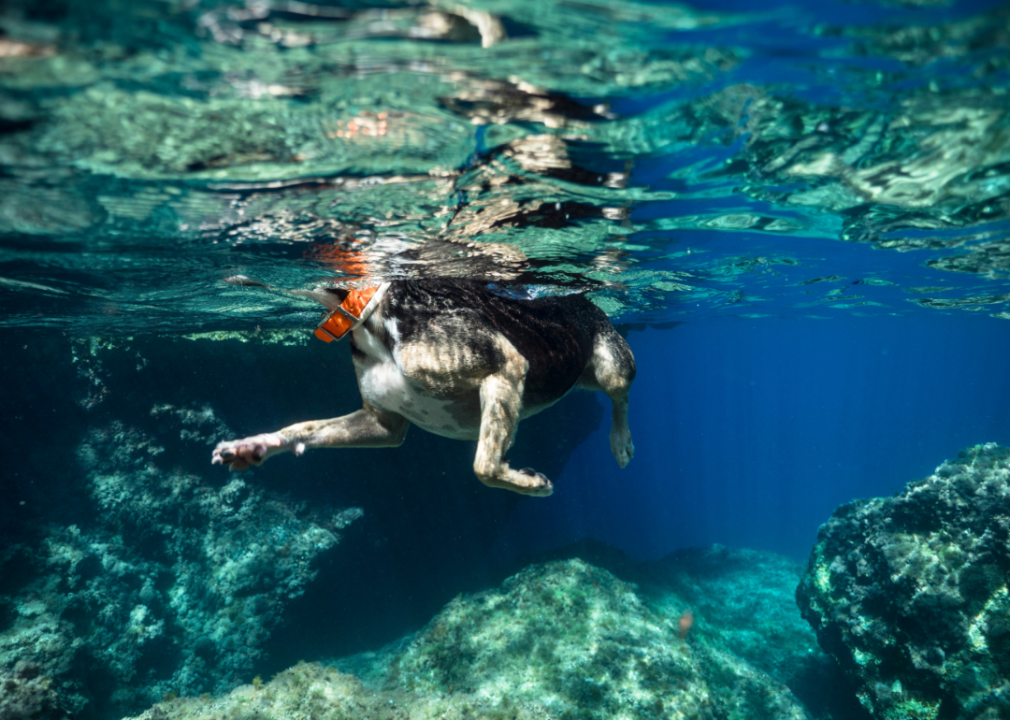
They don't call it the doggy paddle for nothing: Some dogs, like retrievers and spaniels, were born (and bred) to swim, and escaping into a cool body of water can chill out both you and your dog.
Before heading to the lake or ocean, check that dogs are allowed there, and keep in mind that not all dogs naturally know how to swim. If you've never swam with your dog before, you should test the water—literally. Experts recommend not forcing your dog into the water and taking it slow if they're new to swimming. You could also get your dog a life jacket.
Other safety tips for taking your dog swimming during the summer include ensuring they don't drink salt water, as it can make them sick, making sure there's a shady place out of the water for them (and you) to rest, and making sure the water isn't too rough before allowing your dog to run in. Keep an eye out for sneaky bites of seaweed, which can upset your pup's tummy. Doggy sunscreen (which shouldn't contain zinc oxide or para-aminobenzoic acid) and plenty of drinking water are also beach day essentials.
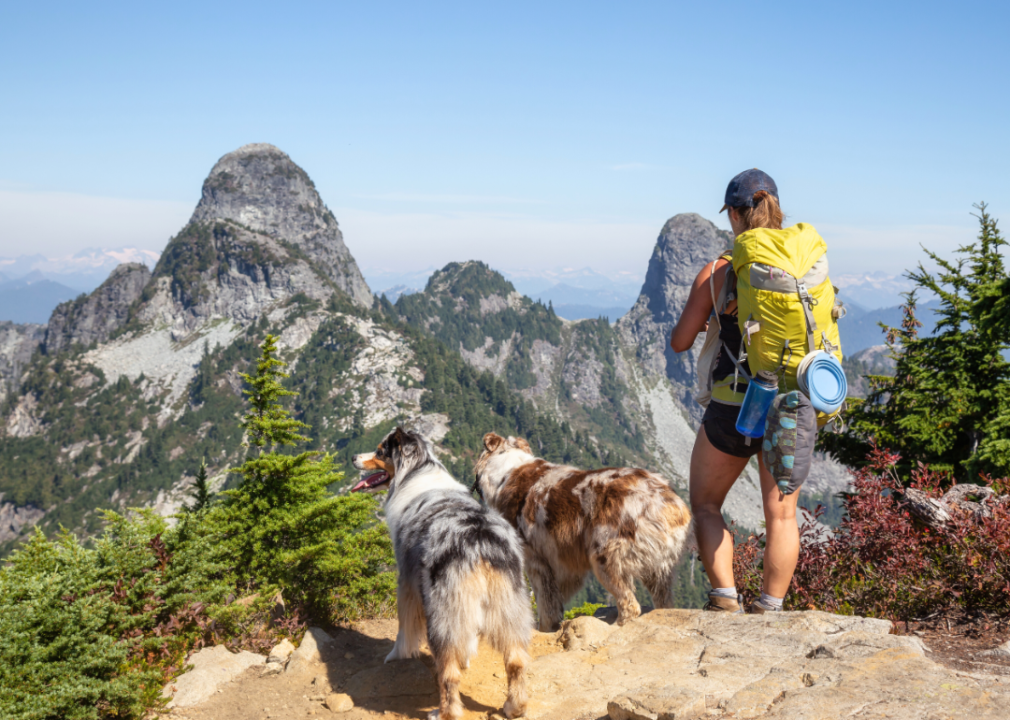
Hiking with your dog can be a fun, active adventure that takes you outside but trades direct sun for shady trails. Hiking is a stimulating, interactive activity that will undoubtedly tire out both you and your furry companion. Hikes require some planning, however.
The first step is ensuring the trail allows dogs and any off-leash rules. Assess the hike's difficulty level to make sure your dog will be able to complete the trail. Another thing to consider is how hot and rugged the trail is. Depending on the level of sun, dog shoes or hiking booties can protect your pup's paws from the hot ground.
Other supplies to pack include ample water and a water bowl, a pet emergency kit, and a leash that both of you feel comfortable with. Experts also advise putting sunscreen on your dog and being extra cautious about tick exposure. Make sure your dog has preventative protection against ticks, fleas, and mosquitos, and perform a thorough tick check after hiking to ensure the safety of your pup and yourself.
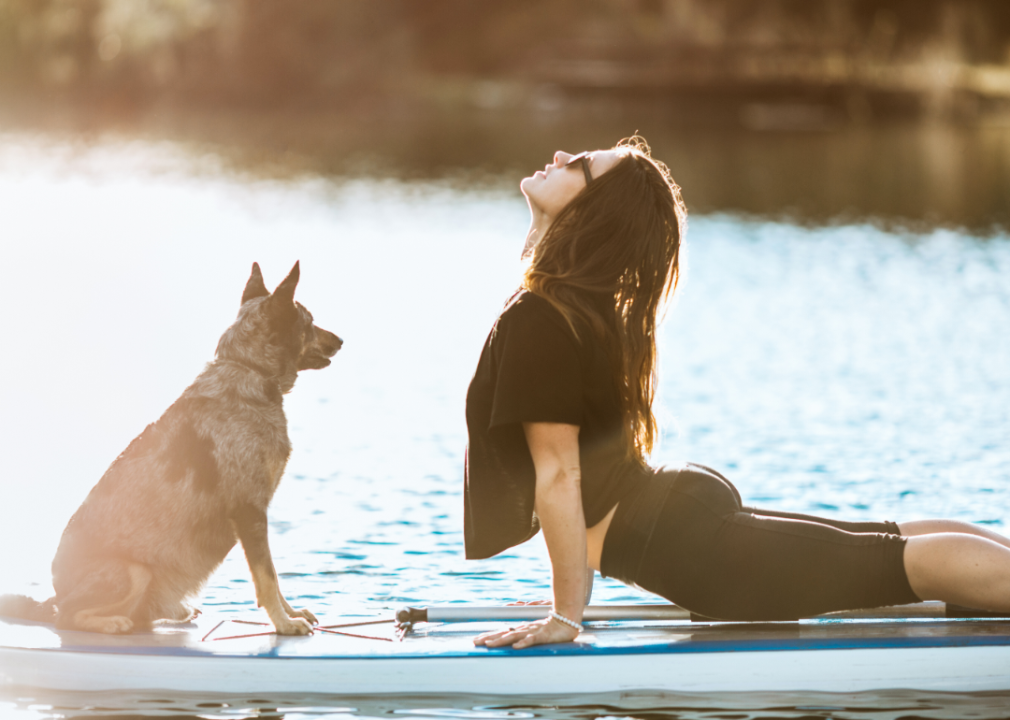
If it's too hot to venture outdoors, yoga can be a fun indoor activity that tests your and your dog's physical and mental stamina. Dog yoga, or "doga," has grown in popularity over the last couple of decades and was inspired by observing how dogs naturally stretch.
Doing yoga with your dog can improve attention and energy levels for both of you and can calm a hyperactive pup. It can also improve your dog's circulation and training skills. For older and disabled dogs, it can be a welcome, low-impact form of exercise.
You can seek out a doga class in your community or try it at home. Most dog yoga poses are adaptations of traditional yoga postures that focus on breathing, stretching, and staying still for extended periods. If you have a small dog, you can lift them while you do a pose, or for dogs of any size, you can help them stretch in various positions. For curious dogs who are uncomfortable being held, you can do yoga while they explore what you're doing.
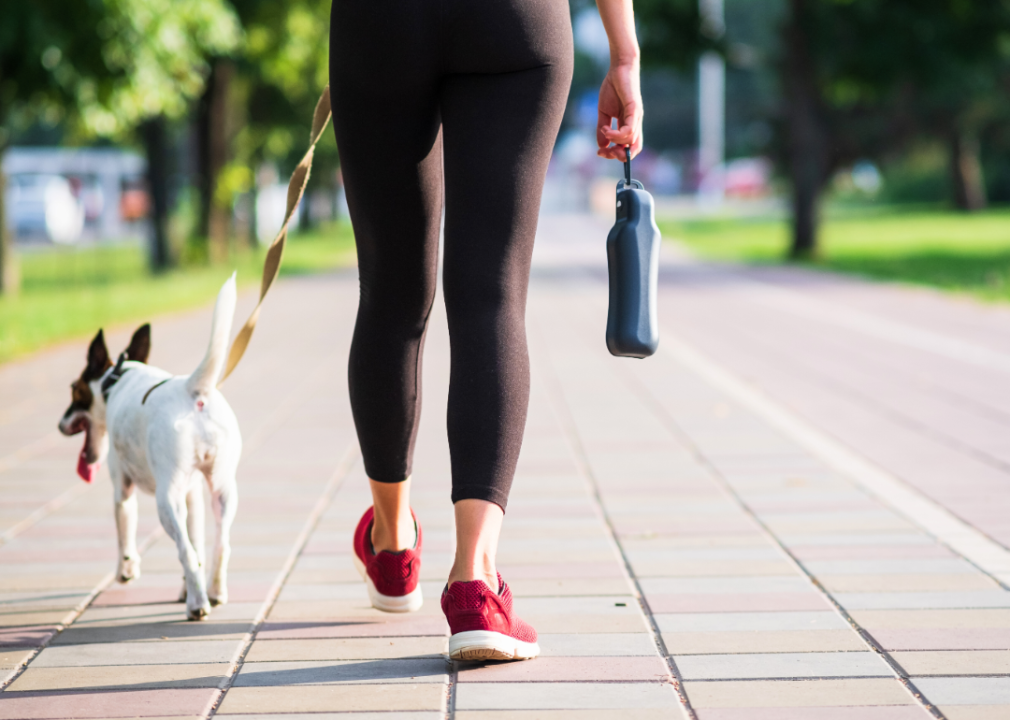
Going for walks or runs with your dog may be a part of your everyday routine year-round, but during the summer months, safely doing so can be challenging. Experts recommend walking or running during the coolest parts of the day, either morning or evening, before or after the sun is strongest.
One of the biggest risks of going for runs or walks in the summer is your pup's paw pads getting damaged on hot asphalt or other surfaces. Find grassy or shady areas, or invest in dog shoes to protect their sensitive paws. Parks or flat, unpaved trails can be ideal spots for walking or running during the summer.
There are a few ways of determining whether the ground is too hot to tread on. If the temperature is hovering at or above 85 degrees Fahrenheit, it's usually too hot for dogs. You can also test the ground temperature by resting your hand on the surface in question for 10 seconds. If it's too hot for your hand, it's definitely too hot for your dog's paws. Watch out for heat stroke in dogs, which can be preceded by excessive drooling, confusion, or bright red, blue, or purple gums.
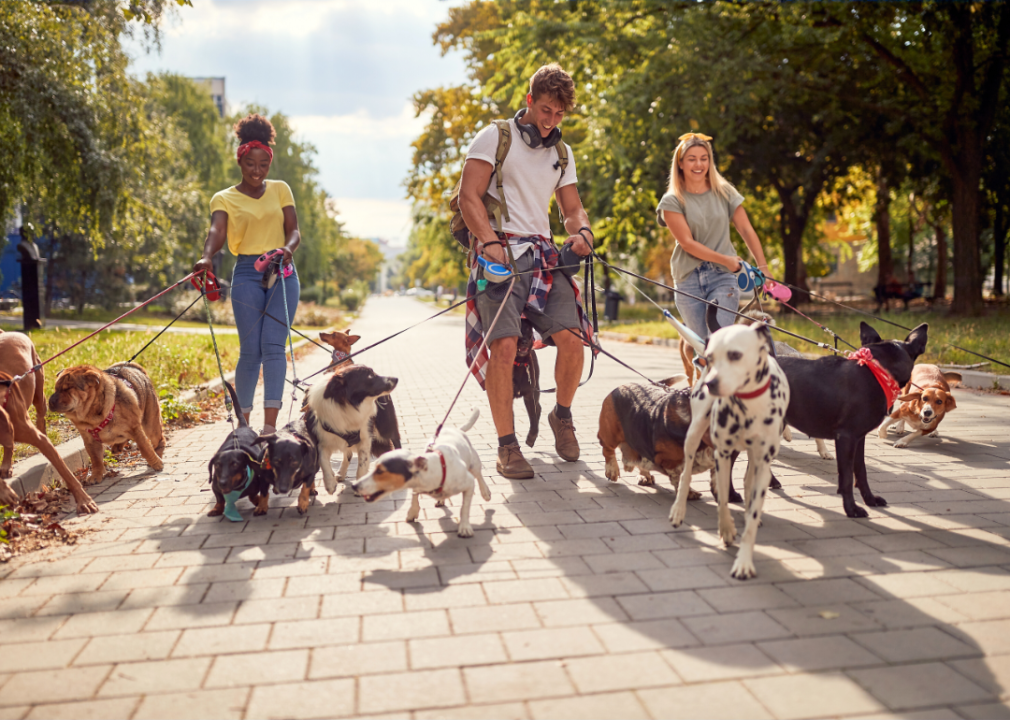
Dog parks can be fun venues for play, exercise, and socialization for both dogs and humans—but there are some important safety considerations for summertime, aside from standard dog park safety rules, like making sure your dog's shots are up to date.
For one, avoiding the hottest hours—usually from midday to around 4:30 p.m.—can be a good way to get outside without you or your pup roasting in the sun. Bringing water is also a must for outdoor play, but experts warn against letting your dog drink too much at once, which can lead to dangerous bloating.
Additionally, seeking out a dog park with a fountain or other water feature can give your dog an opportunity to cool off throughout the outing. Not all breeds are cut out for outdoor play on hot days, however. According to the American Kennel Club, dogs with short snouts, like bulldogs and boxers, don't pant as efficiently as dogs with longer snouts, making it harder to regulate their temperatures.
Whichever way you decide to stay active with your four-legged friend this summer, be safe, watch out for heat, and have fun.
Story editing by Carren Jao. Additional editing by Kelly Glass. Copy editing by Kristen Wegrzyn. Photo selection by Lacy Kerrick.
This story originally appeared on Pettable and was produced and distributed in partnership with Stacker Studio.